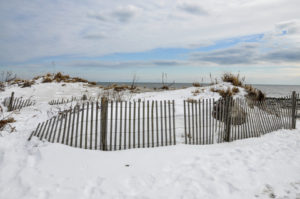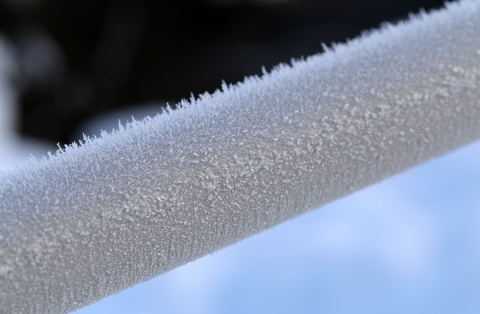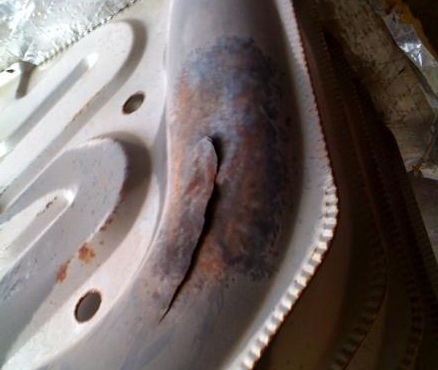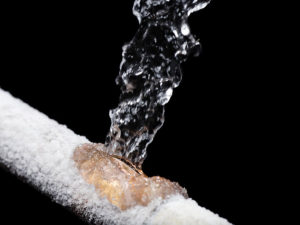HVAC Service Contracts in South Jersey:Frequently Asked Questions
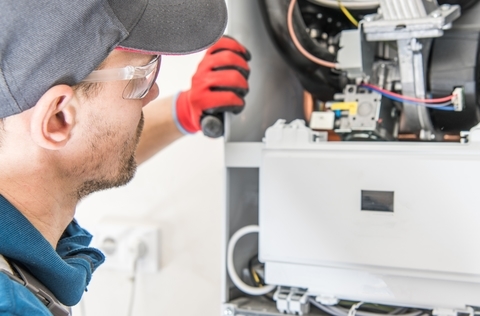
All About HVAC Service Contracts For Jersey Shore Homes
There are plenty of reasons to get an HVAC service contract for your home on the Jersey shore. You’ll save money, you’ll be more comfortable, and you won’t worry about a second home during the winter.
The way it works is that you pay a small amount each month. This gets you regular maintenance plus other benefits when you need them.
Why Do I Need an HVAC Service Contract?
Service contracts extend your heater’s life and warranty. They help avoid costly breakdowns and optimize the system. This keeps your energy bill low. And, for shore homes, it’s peace of mind knowing your heater is working all winter when you’re not there.
We’ll get into each of these in detail below. But first, we’ll address the warranty.
HVAC systems are expensive. But, they come with warranties that usually last for around 10 years. However, the catch is that you need to have it professionally maintained.
With a contract, also called a maintenance agreement, you’re sure to keep the warranty valid.
Does My Vacation or Rental Property Need a Service Contract?
All homes, including vacation and rental properties, should have service contracts. Second homes may even need them more than primary residences — especially in the winter.
Second homes at the Jersey Shore are usually vacant all winter. But, you need to keep the heat on the whole time.
Otherwise, you could end up with frozen pipes that could rupture and burst. Or, any number of other problems.
But, if no one’s there, no one will catch a problem early before it becomes a major catastrophe. So, making sure the system is in great shape can prevent this from happening.
What Do I Get With a Service Contract?
Service contracts vary from company to company. And, there are often different tiers of service with different pricing.
The basics are the same, and they’re centered around preventative maintenance, or a tune-up.
This is when an HVAC tech looks over your heater or AC in the fall or spring. They’ll make sure everything is in good working order, and fix or replace anything that’s worn or broken.
Then, they optimize it, so the system uses as little power as necessary.
Safety Inspections, Tune-Ups, and Regular Maintenance
Broadley’s offers one-time safety inspections and tune-ups. Then, you can upgrade to an annual agreement. That includes the tune-up plus other benefits.
For now, we’re looking just at heaters. In a later blog, we’ll go into what you get for air conditioners.
Safety Inspection
First is the basic safety check. Here, we inspect the:
- Thermostat
- Gas burners and controls
- Blower and inducer motor
- Heat exchanger
- Electrical connections
Most of this is straightforward. But, the heat exchanger is worth mentioning.
The exchanger is a component inside the furnace. If it cracks, carbon monoxide leaks into your home.
But, it’s not a component you can visually inspect. To tell if there’s a problem, we need to check for excess carbon monoxide.
It’s an example of something important for your safety, but also something you can’t check on your own.
Tune-Up
A full tune-up includes:
Cleaning the Flue Pipe
The flue pipe vents exhaust from the system. If it’s clogged or blocked, carbon monoxide can back up and seep into your home.
Checking and Adjusting the Draft Damper
The damper controls the amount of air pressure or airflow through the system. If it’s closed all the time, heat and foul-smelling air back up into the room.
Safety Check All Operating Controls
This includes several components that make the furnace work. The unit may not work at all if certain ones are damaged. Or, it won’t run efficiently.
Inspect and Lubricate Circulator, Fan and Burner Motors
These are the moving parts in your HVAC system. Just like a car engine needs oil, these should be lubricated to work properly.
Clean and Inspect the Burner
This inspection includes the electrodes and nozzle assembly, dan, housing, end cone, and air tube. It’s the part of the unit where gas and air mix and burn, generating heat.
Inspect Combustion
Your system needs combustion air for the fuel to burn. Not enough and you risk a backdraft or too much carbon monoxide.
Clean the Chamber and Inspect the Ignition System
Seal the Combustion Tube and Clean the Doors
The chamber is where the combustion occurs. Keeping that and the related components clean means you’ll have the right mix of air and gas for the unit to work efficiently. If not, you run the risk of the unit not producing heat or causing other problems.
Benefits of a Broadley’s HVAC Service Contract
Along with the items in the tune-up, Broadley’s HVAC service contract also provides:
- 15% discount on repairs not covered under manufacturer’s warranty
- Guaranteed same-day service
- Scheduled reminders for annual service
- No diagnostic fees (a $100 value)
- Lifetime thermostat warranty
- Filter replacement
How Much Does a Service Contract Cost?
We can’t speak for everyone’s contracts. And, as we said, the pricing depends on the benefits each one includes. But, at Broadley’s, we offer the basic safety inspection for $55.55.
Most of the full-service contracts, which includes tune-ups for the heater, is around $140 annually, depending on your equipment. A similar agreement for your AC costs about the same.
Is it worth it? We certainly think so. That’s especially when you add up everything you get for it. And, the money it saves you throughout the year.
How Does a Service Contract Save Me Money?
To see how your annual maintenance will save you money, start by comparing the cost of just the tune-up to the contract.
The contract costs $140. The tune-up on its own? $145.
No, that’s not a mistake. You’ll save $5 right off the bat with the yearly agreement. We do it because we value our customers for the long term. And, we don’t want them to deal with the stress of sudden breakdowns and other problems.
Next is the money you’ll save throughout the year on energy bills. When your system runs efficiently, it uses less energy — gas, electric, or oil — to get the job done. So, that’s less you pay for every month on your utility bills.
Avoiding Costly Breakdowns
When you take the time before the heavy season to make sure all the worn and broken parts get replaced, you prevent many small problems from shutting down the entire system.
Finally, don’t forget the same-day service. In the middle of January, you won’t want to wait a few days for someone to repair your furnace.
But, that’s what happens during the busy season: The best HVAC companies get backlogged.
So, instead of paying extra for priority service, you’re already guaranteed same-day service.
Add up all those benefits, and weigh it against that cost. We think you’ll find paying just $12 or $13 a month is more than worth it for the whole package.
Meanwhile, if you still have any questions, give us a call today! We’ll help you find a package that will keep your home, vacation house, second home, or investment property up and running all year long.

